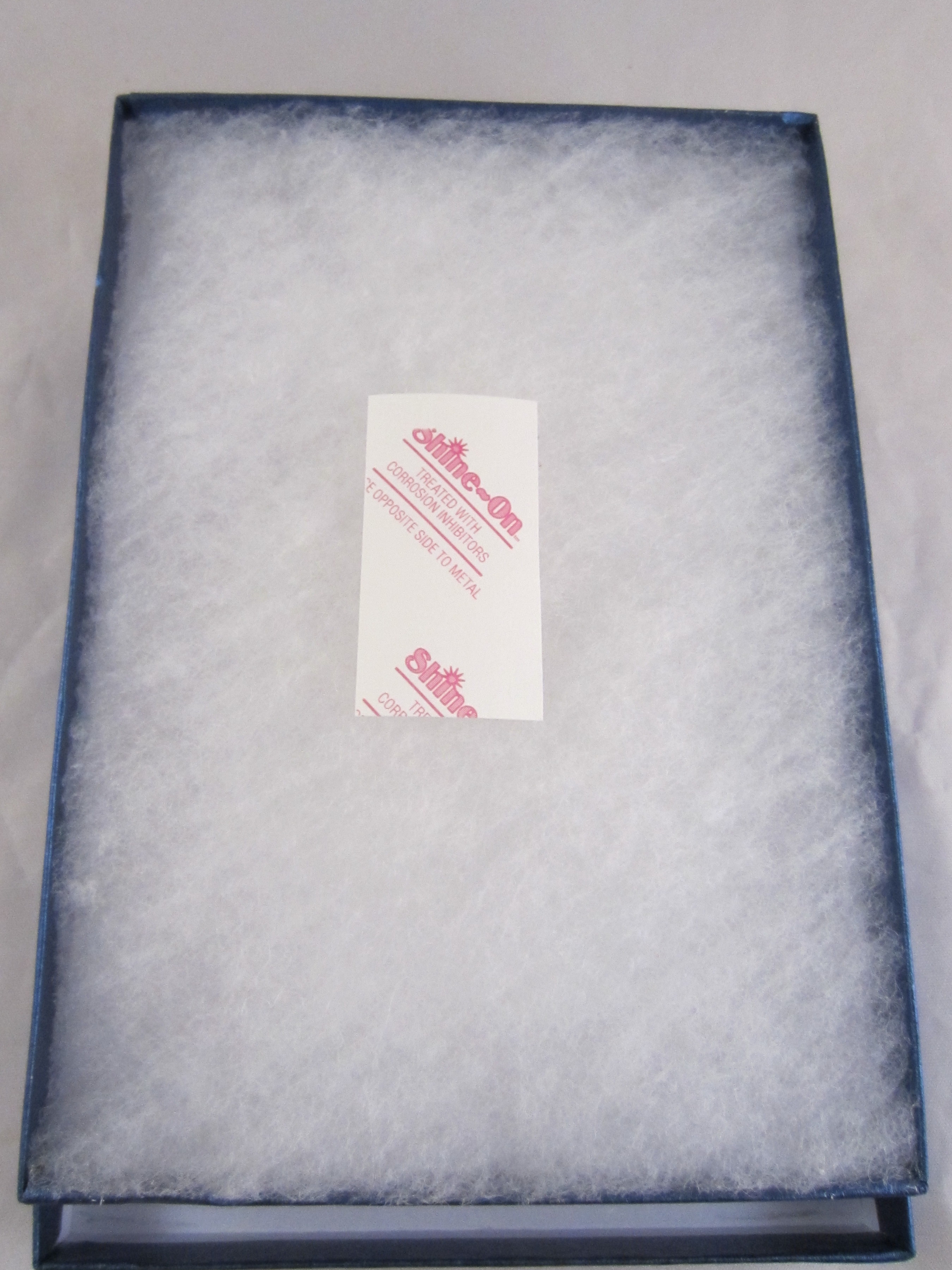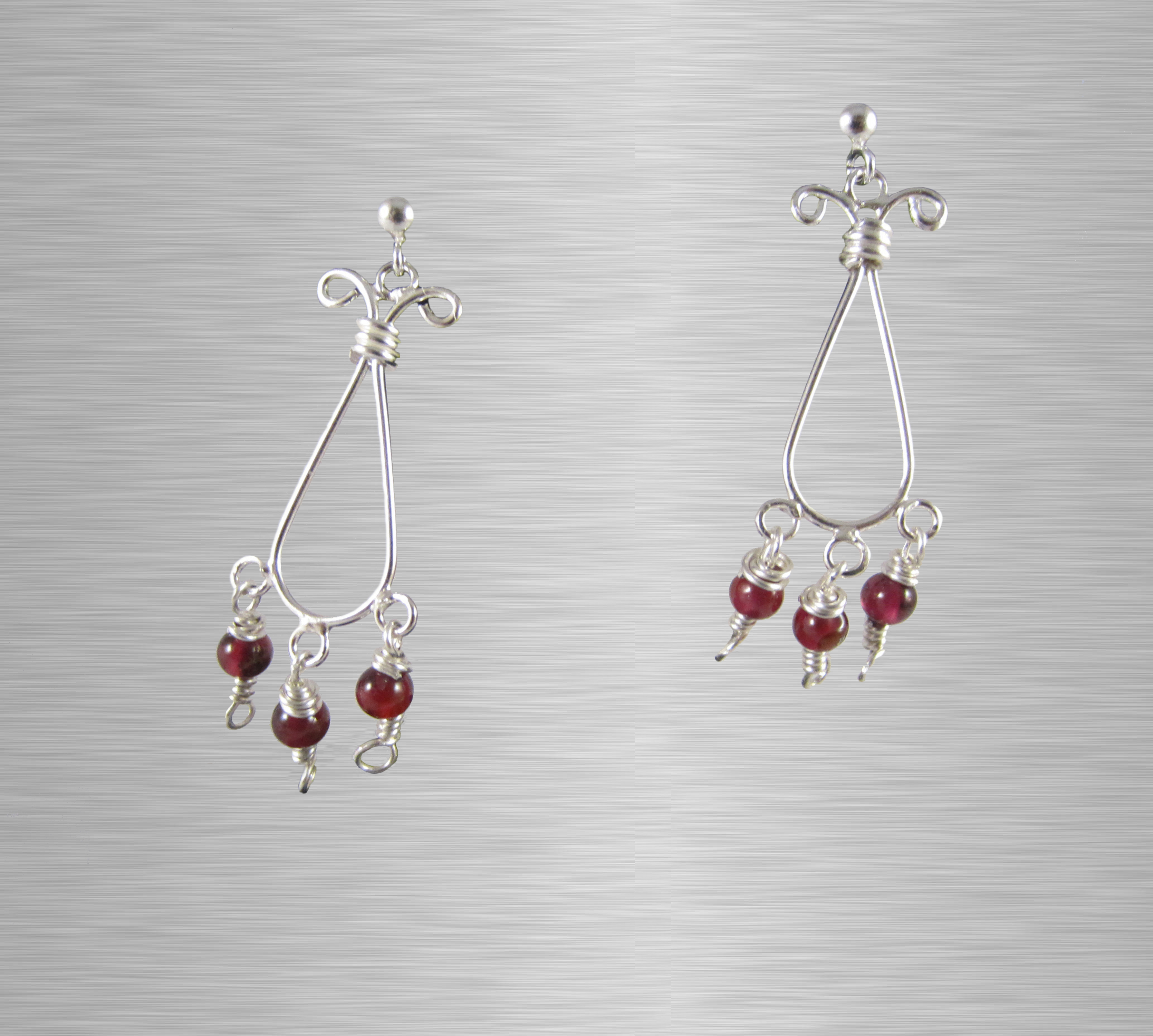
Jewelry Care
How To Care For Your Base Metal & Precious Metal Jewelry
So, you’ve just bought a beautiful piece of jewelry, and you want to keep it safe? Good! Here are some nice, easy rules to help you keep it in mint condition forever.
- Keep it in a clean, dry place, away from direct sunlight, heat, dust, and humidity.
- It’s best to store each piece separately to avoid your metals being scratched, and your gems chipped. Ideally, use a jewelry box with separate compartments, or alternately you can store it in small zip lock bags to prevent them from coming in contact with one another.
- Jewelry is made from soft, malleable metals, and is vulnerable to water. Always take your jewelry off before you go to sleep, and never, ever swim or bathe with it on.
- Never use excess force on your jewelry, because you can damage it.
- Your jewelry should be the last thing you put on when you’re getting dressed, and the first thing you take off when you get home.
- Don’t expose your jewelry to chemicals of any kind, such as perfume, deodorant, chlorine, salt water, or bleach. Use only gentle detergents.
Every metal is different, so there are also specific guidelines depending on which metal your piece is made from. Some metals are fine for daily use, while others are best kept for special occasions.
How To Care For Silver-Plated and Sterling Silver Jewelry:
- Silver is usually fine to wear on a daily basis.
- Silver is softer than gold, so be particularly careful not to damage it.
- Silver naturally tarnishes (turns black) when exposed to the air and the oils in your skin. This is normal, and usually easy to remove.
- The easiest way to keep your jewelry in good condition is to wear it regularly. The friction keeps most tarnish at bay.
- To remove persistent tarnish, clean it with a silver-polishing cloth, or a soft toothbrush dipped in warm, soapy water. Pat away any excess water, then leave it to dry in a safe place.
- Avoid using commercial silver dip solutions, as these can damage your jewelry.
- Avoid harsh cleaning solutions.
- Do not use anything but a specialist silver cleaning cloth to rub your jewelry, as you can damage it.
- Do not rub vigorously.
- Do not wear it or store it while it’s still wet.
How To Care For Gold-Plated Jewelry:
- Gold-plated jewelry is best suited to special occasions. If worn too frequently, it can damage the piece.
- To clean your gold-plated jewelry, use a soft chamois and/or warm, soapy water. Rinse the item carefully once you’ve finished washing it, and leave it to dry on a clean, safe surface.
- Do not rub vigorously.
- Do not wear it or put it away while it’s still wet.
How To Care For Your Birthstone Jewelry
Precious and semi-precious stones are beautiful, but they’re also extremely fragile. To keep your new jewelry looking fantastic for as long as possible, here are some simple rules to help:
1. Keep Away From Chemicals:
Some stones, particularly organic gemstones like Pearl and Coral, are sensitive to harsh chemicals. It is also best to avoid having your stones come into contact with any kind of cosmetics, including perfumes, deodorants, hair spray, and makeup.
2. Avoid Exposure to Direct Sunlight:
Excessive exposure to sunlight can make some stones fade and lose their luster. Store them in a dark place when you’re not wearing them.
3. Be Gentle!
The very thing that makes precious and semi-precious stones so beautiful makes them vulnerable to damage. Always be gentle with your stones. Take them off if you’re going swimming, or playing sports. Do not let them rub against one another, as they can scratch, chip, or dent. Shaped stone (such as beads or pendants) are even more fragile than raw stones.
For best results, store the stones separately, either in their original packaging or in a jewelry box with separate compartments. Remember, even a diamond can shatter if mishandled.
Cleaning Your Stones
There are various brands of jewelry cleaners for semi-precious and precious stones. Research before purchasing any, and read the instructions carefully before applying to your stones. Different types of stones react in different ways when exposed to moisture and chemicals, depending on their own chemical composition. If a gemstone is non-porous, it will not absorb liquid or chemicals, making it easier to clean. Porous stones are absorbent, so more care is required. Some stones have flaws in them called “inclusions”, which can make an otherwise tough gemstone much more susceptible to damage.
|
Garnet (January) |
– This gemstone is non-porous. – Ultrasonic cleaners are safe. – Steam cleaners are not safe. – Can fracture if exposed to sudden temperature change. – For best results, clean with warm, soapy water and a soft brush or cloth.
|
|
Amethyst (February) |
– This gemstone is non-porous. – Ultrasonic cleaners are safe. – Steam cleaners are not safe. – Can fade if exposed to direct sunlight or high heat for an extended period of time. – For best results, clean with warm, soapy water, and a soft brush or cloth.
|
|
Aquamarine (March) |
– This gemstone is non-porous. – Ultrasonic cleaners are safe. – Steam cleaners are safe. – This stone requires no special treatment, unless it has an inclusion. If it has inclusions, restrict cleaning to warm, soapy water, and a soft brush or cloth.
|
|
Diamond (April) |
– This gemstone is non-porous. – Ultrasonic cleaners are safe. – Steam cleaners are safe. – This stone requires no special treatment, unless it has an inclusion. If it has inclusions, restrict cleaning to warm, soapy water, and a soft brush or cloth.
|
|
Emerald (May) |
– This gemstone is soft, porous, or delicate. – Ultrasonic cleaners are not safe. – Steam cleaners are not safe. – Do not soak. – Do not clean with chemicals or soap. – For best results, clean with cool water and a soft brush, then wipe or pat dry.
|
|
Pearl (June) |
– This gemstone is soft, porous, or delicate. – Ultrasonic cleaners are not safe. – Steam cleaners are not safe. – Do not soak. – Do not clean with chemicals. – For best results, wipe with a soft cloth after each time the pearls are worn. May be washed in mild soapy water every now and then, but ensure that the string is fully dry before wearing it again.
|
|
Ruby (July) |
– This gemstone is non-porous. – Ultrasonic cleaners are safe. – Steam cleaners are safe. – This stone requires no special treatment. For best results, clean with warm, soapy water, and a soft brush or cloth. – If the ruby has been oiled or glass-filled, avoid ultrasonic or steam cleaning.
|
|
Peridot (August) |
– This gemstone is non-porous. – Ultrasonic cleaners are not safe. – Steam cleaners are not safe. – Can fracture if exposed to high temperatures. – For best results, clean with warm, soapy water, and a soft brush or cloth.
|
|
Sapphire (September) |
– This gemstone is non-porous. – Ultrasonic cleaners are safe. – Steam cleaners are safe. – This stone requires no special treatment. For best results, clean with warm, soapy water, and a soft brush or cloth. – If the ruby has been oiled or glass-filled, avoid ultrasonic or steam cleaning. – If oiled, avoid harsh detergents and/or scrubbing.
|
|
Opal (October) |
– This gemstone is soft, porous, or delicate. – Ultrasonic cleaners are not safe. – Steam cleaners are not safe. – Do not clean with chemicals. – Do not expose to high heat. – Do not expose to oil or grease. – Opals contain 5 to 10% water, so avoid storing in air-tight environments. Occasionally soaking the opal in purified water can extend its lifespan. – Opals are particularly soft, so take extra care with storage. – For best results, clean with soapy water, and a soft brush or cloth.
|
|
Citrine (November |
– This gemstone is non-porous. – Ultrasonic cleaners are safe. – Steam cleaners are not safe. – For best results, clean with warm, soapy water, and a soft brush or cloth.
|
|
Turquoise (December) |
– This gemstone is soft, porous, or delicate. – Ultrasonic cleaners are not safe. – Steam cleaners are not safe. – Do not clean with chemicals. – Do not expose to direct sunlight. – Do not expose to oil or grease. – Turquoise is particularly soft, so take extra care with storage. – For best results, clean with soapy water, and a soft brush or cloth.
|
|
|
|
Hardness
All gemstones have a hardness rating based on the Mohs’ Scale of Mineral Hardness. Stones with a higher number are harder than ones with a lower number. Stones with lower numbers are softer, and more likely to be scratched, particularly by gems higher up the scale.
|
Garnet (January) |
6.5 – 7.5
|
|
Amethyst (February) |
7 |
|
Aquamarine (March) |
7.5 – 8 |
|
Diamond (April) |
10 |
|
Emerald (May) |
7.5 – 8 |
|
Pearl (June) |
2.5 – 4.5 |
|
Ruby (July) |
9 |
|
Peridot (August) |
6.5 – 7 |
|
Sapphire (September) |
9 |
|
Opal (October) |
5.5 – 6 |
|
Citrine (November |
7 |
|
Turquoise (December) |
5 – 6 |
|
|
|

